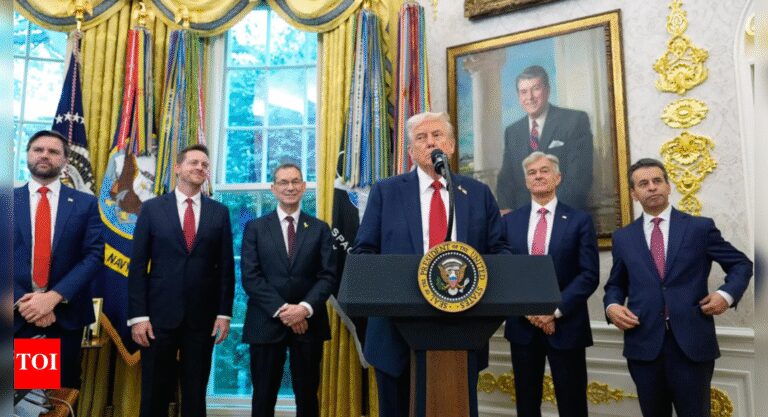
US consumer confidence fell sharply in September as Americans’ concerns over inflation and a weakening job market deepened, according to the Conference Board’s latest survey. The consumer confidence index dropped 3.6 points to 94.2, down from August’s 97.8, marking the lowest reading since April, when President Donald Trump implemented sweeping tariff policies.The index measuring Americans’ short-term expectations for income, business conditions, and employment fell to 73.4, well below the 80 threshold that often signals recession risks, AP reported. Meanwhile, consumers’ evaluation of current economic conditions declined by 7 points to 125.4. Survey respondents cited prices and inflation as their top concern about the economy, regaining the leading position, while mentions of tariffs declined slightly but remained elevated.Government data earlier this month showed inflation rising in August, driven by higher costs for gasoline, groceries, and airfares. Consumer prices increased 2.9% year-on-year, up from 2.7% in July, marking the largest rise since January. Core inflation, excluding food and energy, remained steady at 3.1%.Although unemployment and layoffs remain historically low, the labour market has shown signs of strain this year. The US added just 22,000 nonfarm jobs in August, following a disappointing 79,000 gain in July. Revisions to May and June trimmed a combined 258,000 jobs from prior estimates. The unemployment rate stands at 4.3%, the highest since October 2021.Job openings in August held steady at 7.2 million, according to the Labor Department. Economists note that the slowdown reflects not only the lingering effects of 11 Fed interest rate hikes in 2022 and 2023 but also the impact of Trump-era policies, including tariffs on imports, stricter immigration rules, and federal workforce reductions.Companies remain cautious in hiring, often adopting a “no hire, no fire” approach until the effects of tariffs become clearer. Analysts are now turning attention to Friday’s release of September jobs data, which is expected to show a modest 50,000 job gain.








